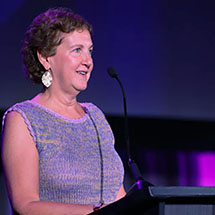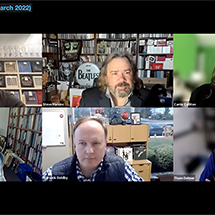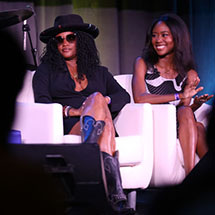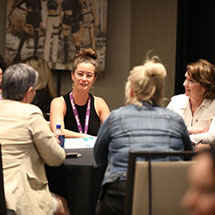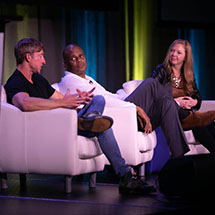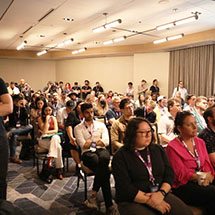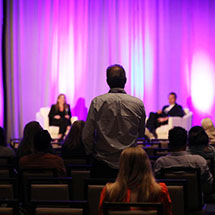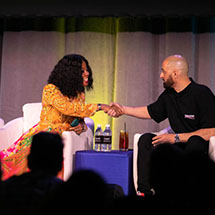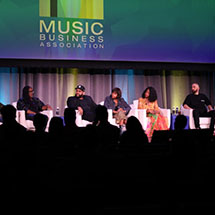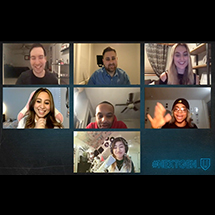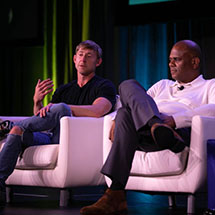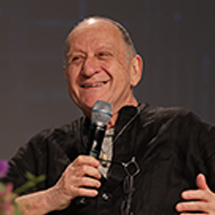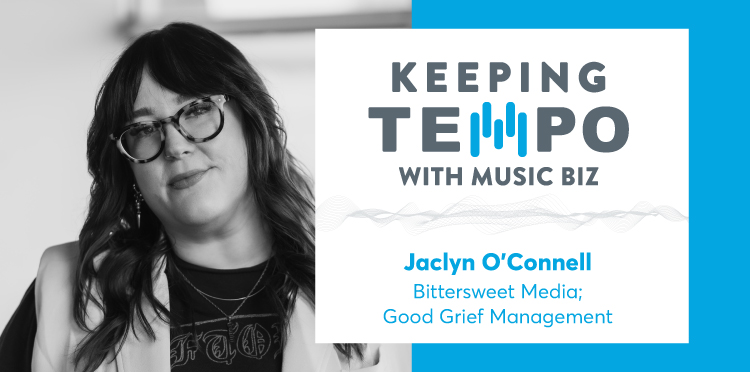
[Keeping Tempo With Music Biz] — Authentic Community Building In Marketing & Artist Management: Interview with Jaclyn O’Connell

The digitization of the music industry and our world as a whole has led to vast changes in the places fans listen to music and engage with their favorite artists. The challenge for our entire industry — particularly for those who directly deal with artists and music marketing — has been to meet fans where they already congregate or create spaces for them to connect with the artist & each other. This month, we spoke to Jaclyn O’Connell on their experience building communities for the artists & partners they work in both artist management and music marketing capacities. The conversation also covers Jaclyn’s music industry career journey, the REAL definition of community building, and the evolution of music marketing in the digital age!
Music Biz: To start, can you give us a sense of your background in the music industry? What led you to your roles both in the music marketing and artist management spaces?
Jaclyn O’Connell: I think like most folks, I’ve always had a passion for music. At some point, you find the door that opens. For me, it was the GM of indie label 6131 Records and artist manager Sean Rhorer who opened that initial door. From there many other doors opened, and I’ve done what I can to honor those relationships with respect, honesty, and good work.
When I entered the music industry in 2016 (after seven years in retail management), there weren’t many people being hired solely for digital marketing/social media roles. That was an uphill battle at the time, to educate folks on the importance of those promotional elements. But nearly 10 years later, it’s one of the most important and crucial roles a team can have.
After working with and on management teams as the creative and digital partner, management felt like a really natural next step for expanding my career. But I didn’t want to take the standard management route – I wanted to be a partner in an artist’s career, not run it for them. So, Good Grief Mgmt Co. was born!
Music Biz: Your most recent venture was establishing Good Grief Management — how has your time working in marketing informed the ways in which this artist management company operates?
JO: Two of the most important ingredients to a successful and sustainable career in music are community and consistency. I say that to everyone! The two go hand-in-hand for artists and industry professionals alike. We use those pillars frequently at Bittersweet Media in our marketing efforts, and they apply just the same in our work as managers. The new era of being an artist manager has to include knowledge of how fan communities work and how to activate them in unique ways.
My knowledge of digital marketing and community growth also allows my artists to not feel alone or burnt out when rolling out music (most of them are independent). Having a partner who understands the landscape of promotion and the importance of rights ownership sets my artists up to have sustainable careers while retaining rights to their music. It’s hard work, but no one ever said this would be easy.
Music Biz: When talking about the evolution of the music business, we often hear about its transition from an industry primarily focused on physical music sales to one focused on digital consumption & streaming. As someone who began their career while the digital age of the music industry was in full swing, what kinds of industry-wide changes have you seen in your career, and how have you adapted your strategies to meet the needs of your artists & clients?
JO: Oof yeah, it’s been quite a rollercoaster over the last nine years of digital marketing in music. As I mentioned, when I entered the music industry nearly 10 years ago, things were very different. Lots of folks were just figuring out how to maximize streaming platforms as marketing tools. Editorial playlisting was very new back then. There were less artists releasing music every day, and vertical video/content creation wasn’t as necessary as it is now.
During the pandemic, we saw the rise – and subsequent fall – of many artists who went viral, but the industry didn’t know how to scale or develop those artists. It’s still an overly saturated marketplace for any genre of artist, but now I think you have to be even more creative and adaptable than ever. At both companies, we’re very honest with artists about what it takes to stand out these days – and it’s a tough reality. You can’t just rely on great music anymore, which is hard for some artists to hear. There has to be a community who wants to be on that journey with you, artists have to care about something other than themselves and their music; they have to share so much more of themselves and their lives. This isn’t for everyone and it’s really hard work.
Music Biz: That brings us to the topic of community building, a shift in strategy from looking solely at data points to measure effectiveness versus creating long-lasting relationships that pay dividends later on. In your own words, what does it mean to meaningfully build community among audiences or fan bases and what positive, tangible impacts does it have?
JO: More than ever, having an active and engaged community is imperative to a sustainable career in music. That can take lots of shapes and doesn’t always need to include social media as the pillar of a community growth strategy. I’ve been encouraging artists and teams to really focus on taking ownership of the direct relationship with fans. That means not relying so much on the fickle algorithms of social media, where you have less control over who sees your content. Instead, prioritize email/text messaging lists to speak directly with your community. Discord servers are still very active, depending on the artist/genre, and provide a space for fans to build a community around artists’ music without the artist needing to be directly involved. The best thing a team can do for their artist is employ ways to have fans be a part of the journey and help do the marketing and promotion.
Music Biz: Are there any insights on how this approach works based on your experience?
JO: I’ve worked with an artist called Cavetown for nearly seven years and we’ve employed a lot of these strategies for quite some time. By honoring the relationship he has with his fans and always doing our best to put them first, we’ve been able to expand his fanbase as they’ve grown with him over the years.
For example, we launched his first official Discord server back in 2020 during the pandemic, which we called Cave Club. This was a space for fans to hang out together, enjoy common hobbies, and listen to music or watch movies. It created a special, intimate space for fans to have periodic access to Cavetown, which allowed him to feel safe and comfortable.
Music Biz: In your opinion, how much of a community-building initiative’s success is based solely on human input, and how much can be attributed to leveraging new tech?
JO: I think this is a 70/30 split – listening to and understanding your community is a huge part of knowing how to best have a sustainable relationship with them. New tech is, of course, always a piece of that depending on what the current promotional strategy looks like. I’m a big believer in meeting your community where they are and also not spreading yourself too thin when it comes to the number of platforms a team engages.
Music Biz: What does effective community building look like today, and how do you see it evolving in the near future?
JO: Folks tend to think community can only be built on social media, but there are loads of ways to build digital and in-person communities outside of social media. These platforms are, of course, free tools that everyone should take advantage of, but being a content creator isn’t for everyone (especially artists). Digital communities can be built on Letterboxd, Discord, Substack, Patreon, etc. Then, you can take those communities and bring them into real spaces. For example, if you’re an artist who also loves to read or cook, take that activity into real spaces like cooking workshops with fans or book clubs that can meet all around the world without the artist needing to be present. It’s just about having something more for fans to relate to and feel seen.
Music Biz: Let’s merge both hats you wear into one — how can artist managers and music marketers collaborate to effectively execute community building campaigns?
JO: Marketers and managers can work together to define pockets of communities that are maybe underserved. For example, if an artist’s team is planning a large international tour, what is the marketing team doing to tap into those niche markets to ensure fans are being super-served ahead of a big tour? While the artist is in those markets, what feels right for the team and the artist to build out in-person events or pop-ups?
Music Biz: What trends do you think will define music marketing in the near and distant future?
JO: Trends I think will define music marketing in the near and distant future are:
- Artists building their own communities outside the confines of the algorithm.
- Way less pre-release promotion; more dropping a song and promoting it.
- More narrative building that makes an artist feel relatable rather than untouchable.
Music Biz: Same question, but for the artist management space — how do you see this area of our business changing in the near and distant future?
JO: How the artist and manager work together is going to drastically change in the coming years – it’s already changing. The need for a manager who not only has connections within the industry but also specializes in a specific revenue stream is going to be crucial to an artist. But the artist also will need to adapt to managers who want an equal partner in the building of that artist’s career.
You can read past “Keeping Tempo” articles via the portal linked here. And, stay tuned for more insightful discussions from our members and partners from across the industry!

